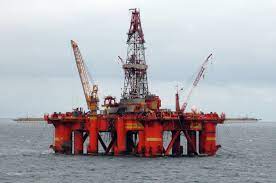
If we have enough oil, gas and coal licenced to last us until we need to be carbon neutral, does that leave no space for further oil gas and coal licences or exploration?
Well, no, but if we are to be carbon neutral by 2050 and we have all the fossil fuels needed until then, then any further extraction must prove that it can capture the same amount of carbon as its products would release.
Is any oil company going to be able to guarantee that it will capture as much carbon as that is released? Unlikely.
At the current time, around us the price of petrol is roughly £1.50 (there are parts of the UK where it is as low as £1.00). Working on a price of £1.50 roughly 45p goes back to the oil company per litre. Now, petrol when consumed in a combustion engine emits roughly 2.3kg of carbon dioxide for every litre, so for the oil company to be able to pay for the carbon to be caught (current prices tend to range between $100-$400 per tonne, or 10-40cents per kg). This means a price per litre of petrol of between 23 cents and 92 cents – somewhere between half and over 2 times the earnings to the oil company.
In other words, provided each oil company lives up to its promises, there is no longer any profit in oil.
Furthermore, it is not possible to put up prices further, as the competition is electric cars. The UK miles per gallon are typically between 36 and 43, so for the £6.75 per gallon that petrol costs in the UK, giving a price per mile of between 16p and 19p, or £1.60-£1.90 for 10 miles. Our car (a relatively large, if efficient electric car) goes around 3.3 miles per kwh (better on the motorway) and with 1 kwh costing around 7p that means a price of 21p per 10 miles. That means that already electric cars are between 7.6 and 9 times cheaper to travel at the current time. These cars are only getting more efficient, so by 2050 it is probably even worse.
Who is going to choose to drive with a fuel almost 10 times more expensive? Oil for personal travel is a dead man walking. Heat pumps and many other things, mean that fossil fuels are not going to be used for so many more of the tasks in our life. It is true that we are yet to find a way to replace fossil fuels in air travel, but in the next 26 years, it is highly likely that we will crack this too.
The short conclusion, is that we do not need further licences, and anyone stupid enough to buy a licence is unlikely to be able to afford to use it – this at least suggests that the majority of the uses of fossil fuels will disappear in the next 25 years, though those in the west need to make sure that the prices come down fast, as this is the only way that the BRICs (Brazil, Russia, India and China) will move over to heat pumps and electric cars at the rate that we all require.
How do we help this happen, when so many of the people in these countries live hand to mouth anyway.











